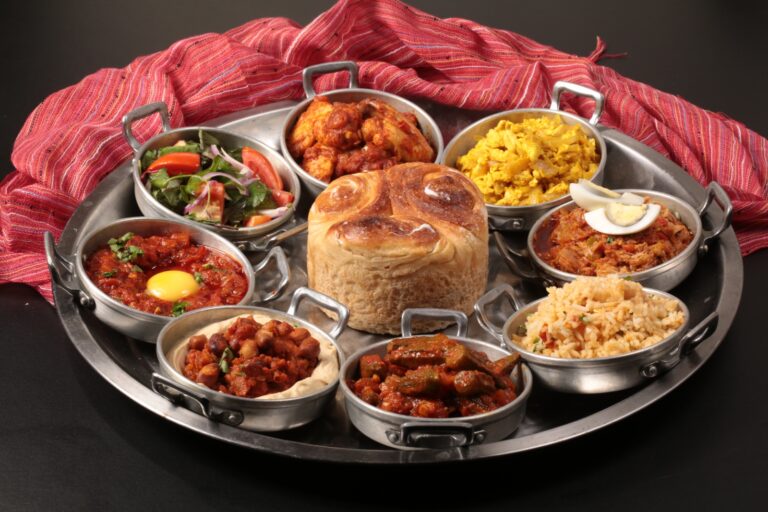Introduction: Yemeni cuisine as cultural expression
Yemeni cuisine is a reflection of the country’s rich cultural heritage. The cuisine is a blend of various cultures and influences that have shaped Yemen’s history. It is a result of the country’s geographical location, climate, and religious beliefs. Yemeni food is prepared and consumed with great care and attention to detail. It is not only a source of nourishment but also a way to express hospitality, tradition, and cultural identity.
Historical influences on Yemeni cuisine
Yemen’s long history of trade and cultural exchanges has influenced its cuisine. The country has been a crossroads of civilizations for thousands of years, and this is reflected in its food. Yemeni cuisine has been influenced by Indian, Persian, Turkish, and African cuisines. The Ottoman Empire, which ruled Yemen for centuries, had a significant impact on Yemeni food. The Ottomans introduced new ingredients such as tomatoes, potatoes, and rice. The Portuguese, who colonized Yemen in the 16th century, introduced chili peppers, which are now an essential part of Yemeni cuisine.
The role of spices in Yemeni cuisine
Spices play a significant role in Yemeni cuisine. They are used to enhance the flavor and aroma of the food. Yemen is known for its high-quality spices, which are grown in the country’s mountainous regions. The most commonly used spices in Yemeni cuisine include cumin, coriander, turmeric, cardamom, and black pepper. Spices are used in both sweet and savory dishes, and their combination creates complex and delicious flavors.
Traditional Yemeni dishes and their significance
Yemeni cuisine is full of unique and flavorful dishes. Some of the most famous traditional dishes include Mandi, a spiced rice and meat dish, and Saltah, a stew made with meat, vegetables, and spices. Foul, a dish of fava beans, is a popular breakfast food in Yemen. Bread is also an essential part of Yemeni cuisine. Malawah, a type of layered bread, and Khobz, a round flatbread, are commonly consumed. Yemeni cuisine is also known for its sweet dishes, such as Bint al-Sahn, a honey cake, and Basbousa, a semolina cake.
Yemeni hospitality and culinary customs
Hospitality is an integral part of Yemeni culture, and food plays a significant role in hospitality. Yemenis take great pride in preparing and serving food to their guests. It is customary to serve large portions of food, and guests are expected to eat generously. It is also common for Yemenis to eat with their hands, which is considered a sign of respect and closeness. Yemeni hospitality is a way to express respect, generosity, and warmth.
Yemeni cuisine in the modern world
Yemeni cuisine has gained popularity in recent years, and more people are discovering its unique flavors and traditions. Yemeni restaurants and food blogs have emerged worldwide, allowing people to experience Yemeni cuisine without traveling to Yemen. However, the ongoing conflict in Yemen has had a significant impact on the country’s food culture. The conflict has made it difficult for people to access food, and many traditional dishes are no longer being prepared or consumed. Despite these challenges, Yemeni cuisine remains a vital part of the country’s cultural heritage, and its popularity is growing worldwide.

